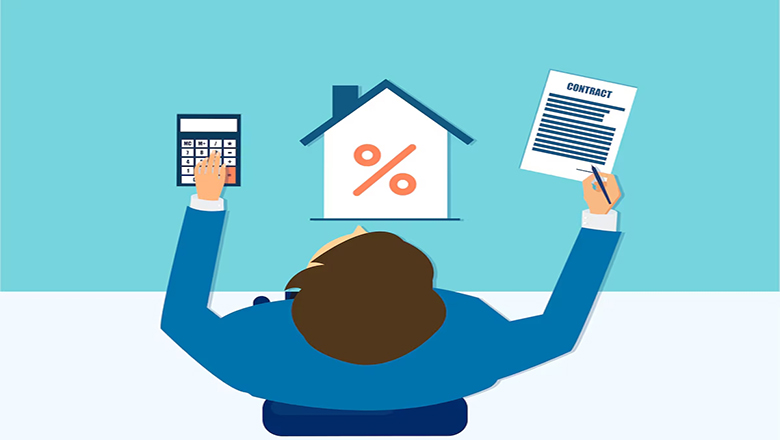In today’s tense housing market, deciding whether to co-sign your kid’s mortgage is becoming more relevant as stepping into the home-buying process is becoming more difficult, particularly for younger Canadians. The affordability is at a record low due to increasing prices for homes and rising interest rates. This is why a lot of young buyers are relying on their parents to benefit to purchase their first house.
However, is co-signing mortgages an appropriate financial choice for parents? Let’s look at the motives of this practice as well as the possible risks and the implications for parents and their children.
Co-Sign Your Kid’s Mortgage: The Current Housing Market Landscape
It’s not a surprise that young Canadians are finding it almost impossible to purchase houses by themselves. A recent report by Statistics Canada highlights that in 2021, 17.3% of residential properties owned by individuals that were born between 1990 and 2000 shared ownership by their parents. In addition, 34.4% of these properties owned by co-owners were likely to require mortgage co-signing agreements.
The data show the rates of these are much higher in the country’s largest cities with the highest cost: 27.2 percentage for Toronto and 23.4 percent in Vancouver. As per the Canadian Real Estate Association, potential homebuyers could expect to shell out around $200,000 more than they be able to in 2019, with an average price of a home being just below $700,000. In Toronto the average home’s price for March was $1156,167 and in Vancouver the average was $1,205,800.
A high interest rate also plays in the equation, with mortgage stress tests demanding the borrower to meet an interest rate that is 2% more than the rate of their lender, which ranges from 7% to 8 percent.
With these figures It could be that having parents with deep pockets co-sign a mortgage could be the answer to your financial woes. Co-signing may reduce the risk profile of an adult borrowing, benefit in passing the test for stress on mortgages and possibly obtain a lower interest rate on a mortgage.
The Risks of Co-Signing a Mortgage
While assisting your child to purchase an apartment may seem like something that is genuinely nice but it is also a substantial dangers. Here are some important considerations:
Financial Liability
Co-signing mortgages means that both parents are equally responsible for mortgage payments. According to lenders, it renders parents fully accountable if the borrower who is the principal (the child) is unable to pay. This can affect the credit score of parents and their finances.
Income Requirements
It’s not so surprising that parents must be able to prove they have “unencumbered” income to co-sign for a mortgage. This means that their income isn’t associated with their personal expenses for example, a car or mortgage. A lot of parents have money in RRSPs or homes that have been paid off however, what’s required is cash flow. Cash which is easily accessible.
Parents who are working and have pensions and dividend-paying stocks, as well as rental homes with the potential to add income are best in the position of co-signing. In essence, a number on page 15000 of the Notice of Assessment that isn’t used up due to their costs is needed.
Impact on Retirement Plans
For many parents who are aging and who are nearing retirement, or those who draw from the Registered Retirement Income Fund (RRIF) co-signing may cause financial problems. The addition of a mortgage could limit their ability to get extra credit if their debt ratios get excessive.
Rising Popularity of Co-Signing
Despite the risks, cosigning has been more prevalent from 2022 onwards, which coincides with the rising interest rates. Our brokerage has witnessed an improve in co-signing arrangements. In the future, co-signing is likely to become more common as homeowners renew their mortgage loan terms in the face of rising interest rates. Some homeowners may think about switching lenders, only to find that they can do not qualify anymore, which could prompt them to join an additional co-signer.
However, sticking with your existing lender can be more secure and less risky since they typically won’t have to re-stress your account at renewal.
Conclusion Use Care and Caution
Co-signing a mortgage places parents on the hook for their mortgage payments, which can leave the mortgagees financially vulnerable. When it comes to deciding whether it’s an investment or as an act out of affection, it’s important to take this decision with care and prudence.
Before signing a co-signer, parents must be sure to ask themselves if they could afford it, and whether it’s a wise financial decision. Be aware of the possible consequences for their retirement savings and financial security, particularly when they have several children who might also require assistance.
The fact is that co-signing mortgages is a significant decision that needs to be evaluated carefully. If you’re thinking about this move make sure you consult experts in the field of mortgage and financial advice to fully understand the implications and then make the right decision.
In this way by doing this, you will benefit the child obtain the dream of homeownership without putting at risk your financial security. A balanced strategy can assure that both generations prosper in today’s competitive real estate market.

